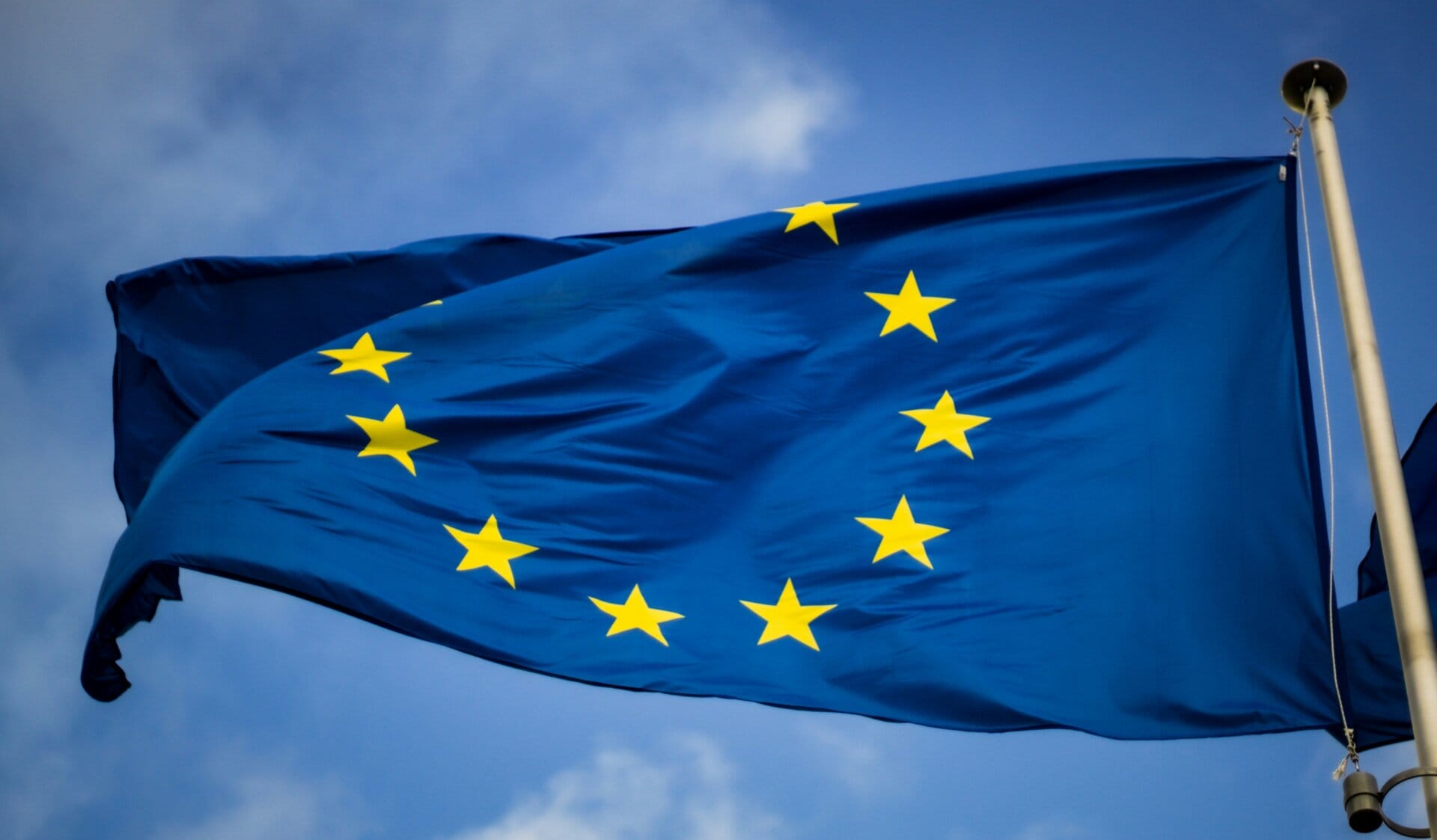The Wake-Up Call: Rethinking Export Strategies
Mexican distillate producers are facing a sobering reality check. A massive surplus of tequila (aka. tequila lake) – over 525 million liters sitting unsold – has accumulated by the end of 2023 + USA import tariffs of 25%. With 80% of Mexico’s tequila exports heading to the U.S. the tariffs are a significant problem.
This wake-up call is prompting tequila, mezcal, and even lesser-known spirits like Sotol, Raicilla, and Bacanora to reconsider their export strategies. The message is clear: solely betting on the U.S. is increasingly risky, and diversification is no longer optional but necessary.
Tariffs and Trade Disputes Rattle the Industry
Compounding the demand slowdown are looming trade tensions. Former and current U.S. President Donald Trump, has imposed a 25% tariff on all Mexican goods, a move that will directly hit tequila and mezcal exports.
Such tariffs, would drastically raise prices for American consumers, and slash sales for Mexican producers. Industry leaders warn this would be a self-defeating measure for the U.S. as well, with the head of Mexico’s Tequila Regulatory Council cautioning that Americans “would have to pay much more” for their favorite spirits.
Past trade disputes have already shown how quickly market access can be disrupted. For Mexico’s distillers – from global tequila brands to small artisanal mezcaleros – these risks underscore the peril of putting all their eggs in one basket. Trade spats and protectionism can emerge suddenly, so having alternative markets lined up is a vital insurance policy.
Europe: A Viable and Lucrative Alternative
With the U.S. outlook shaking, attention is turning across the Atlantic. The European Union is emerging as a promising, almost under-tapped market for Mexican spirits. Historically, Europe has been a small buyer – for instance, Germany and Spain together, don’t even equal 5% of tequila exports.
But that dynamic is poised to change. In fact, Europe’s appetite for agave spirits has been on the rise. Tequila is currently the fastest-growing spirit category in Europe, with recent data showing import surges of 68% in the UK, 60% in Germany, 73% in France, and 90% in Spain in a single year.
This trend suggests that European consumers are discovering tequila and its kin, embracing everything from premium sipping tequilas, to craft mezcals.
Importantly, Europe offers a diversified landscape of economies and tastes. If one country’s demand dips, another might be on the upswing – a natural hedge against regional downturns. Moreover, Europe’s recognition of Mexico’s denominations of origin (for Tequila, Mezcal, Bacanora, Raicilla, Sotol, etc.) through trade agreements, ensures that Mexican producers can protect their brand integrity and authenticity in the EU market. The craft cocktail renaissance across European capitals, has bartenders seeking new and exciting spirits, and Mexican distillates perfectly fit the bill. By pivoting to Europe, producers of Tequila, Mezcal, Sotol, Raicilla, and Bacanora, can cultivate new consumer bases and reduce their overdependence on a single market. The European market, in sum, is both viable and potentially lucrative – a continent of opportunity waiting to be fully tapped.

Steps to Establish a Foothold in Europe
Entering the European market requires investment and strategy, but the payoff can be significant. Here are key steps and considerations for distillers planning a European expansion:
- Understand Regulatory Requirements: Ensure your spirit meets all EU import regulations and labeling laws. Mexican spirits with protected names (Tequila, Mezcal, etc.) must have the proper certification (CRT for tequila, CRM for mezcal) to be recognized in Europe. Labels may need to include information in multiple languages, and EU alcohol labeling standards (such as health warnings and unit alcohol content) must be followed. Also, note packaging norms – for example, the standard 700ml bottle size (as opposed to the 750ml U.S., now outdated standard) for spirits, to align with local market regulations.
- Secure Importation and Compliance: Partner with a licensed importer or establish an import entity in the EU. This step is crucial to handle customs duties, VAT, and excise taxes. Using a bonded warehouse in Europe can defer duties until products are distributed, improving cash flow. Make sure to register the product with any required EU or national databases (for instance, some countries require registration for new alcohol products).
- Distribution Strategy: Develop a distribution network across target European countries. You might work with a continent-wide distributor, but often it’s effective to appoint country-specific distributors who know their local markets. For example, a distributor in France might have very different channels than one in Poland or Germany. Building relationships with importers and wholesalers who specialize in spirits is key. Some brands opt for a hub-and-spoke model – focusing on one entry market (say, Spain or the UK) and expanding to neighboring countries once established. Others might list products on pan-European online marketplaces to reach consumers directly. Whichever route, a clear logistics plan (from port of entry, to retail shelves) is essential.
- Adapt Marketing to Local Tastes: Just as you would in any new market, tailor your branding and marketing to resonate with European audiences. Highlight aspects of your spirit’s story that align with trends – for instance, organic or artisanal production might appeal in markets like Germany, while heritage and tradition might resonate in the UK or France. Engage local influencers or bartenders, who can champion your tequila or mezcal. Educational tastings and events help demystify spirits like sotol or raicilla that may be unfamiliar to Europeans. Remember that Europe is diverse – what works in Spain may need tweaking in Poland – so be ready to adjust your approach country by country.
- Ensure Ongoing Compliance and Support: Once distribution begins, maintain compliance with each country’s laws (such as alcohol advertising regulations, which vary in strictness). Provide training and support to your distributors, and on-trade partners (bars, restaurants) so that your brand is well represented. Consistency in supply is also crucial; be mindful of shipping schedules, lead times, and inventory in your European warehouses to avoid stockouts or delays that could frustrate new customers.
By following these steps – from legal groundwork to savvy marketing – brands can establish a strong foothold in Europe. The path requires effort and investment, but it sets the stage for sustainable growth beyond the USA.
Master Distillers: A Helping Hand in Market Entry
Breaking into Europe can be daunting, but industry support organizations are ready to help. Companies like Master Distillers, specialize in bridging Mexican brands with European opportunities.
Acting as a one-stop partner, Master Distillers can assist producers at every stage of the journey. This includes import, strategy, brand development – refining the brand story and identity to appeal to European consumers – and orchestrating publicity campaigns to generate buzz in target markets. Through our platform and network, we provide multilingual promotion, ensuring a mezcal from Oaxaca or a bacanora from Sonora, can tell its story in English, Spanish, French, German, Dutch and beyond.
Crucially, Master Distillers also handles logistical and legal hurdles: we manage importation into the EU, navigate customs and compliance, and even offer warehousing solutions for your products within Europe. This means a brand in Mexico, can rely on a partner to get their bottles on the ground in say, Berlin, Amsterdam or London, without having to set up their own import company. Once the product is imported, Master Distillers supports sales across various European countries – leveraging a network of distributors, and sales agents who pitch the spirit to bars, retailers, and consumers. We even coordinate brand activations such as launch parties, bar takeovers, and tasting events, to introduce the product to the market in a memorable way.
In short, an alliance with a firm like Master Distillers can significantly smooth the entry into Europe. It’s akin to having an experienced guide: they know the terrain, have established contacts, and can champion spirits brands in a crowded market.
We also take products on the road – our team will exhibit or pitch your product at major trade shows on your behalf, a crucial service for brands that can’t be everywhere at once. By handling the heavy lifting of marketing and distribution, such partners allow brands to focus on what they do best – crafting quality spirits – while still making inroads abroad.
European Trade Fairs: Key Opportunities for Exposure
For any spirit brand looking to expand in Europe, visibility is vital. There’s no better way to get noticed by importers, distributors, and trend-setting bartenders than by appearing at Europe’s top industry trade fairs. Events like Bar Convent Berlin (BCB), BCB London (formerly Imbibe Live), and ProWein Düsseldorf, have become essential dates on the calendar for drinks professionals and are golden opportunities for brands to showcase their products.
- Bar Convent Berlin (Germany) – Europe’s leading trade show for the bar and spirits industry, attracting over 12,000 attendees from around the world. At BCB Berlin, craft and premium brands rub shoulders with established players, and seminars set trends for what’s next in cocktails and spirits. A Mexican tequila or raicilla brand on the exhibition floor here, can catch the eye of distributors from across the EU (and beyond) in one place. It’s an ideal forum to let industry influencers taste your spirit, and to tell your story directly to people who can help expand your distribution.
- BCB London (UK) – Recently launched as the UK counterpart to Berlin’s event, Bar Convent London carries forward the legacy of Imbibe Live as the premier British drinks expo. With 200+ exhibitors and around 5,400 trade visitors in its latest edition, it’s a hotspot for UK and European buyers. Mexican producers can use BCB London to enter, or bolster their presence in Britain – a market known for its cocktail culture and openness to new spirits. It’s also a gateway to contacts from Ireland, Scandinavia, and other northern European regions who attend. The event’s educational sessions also help a brand understand local market preferences firsthand.
- ProWein Düsseldorf (Germany) – One of the world’s largest wine and spirits trade fairs, ProWein is not just about wine; it has a massive dedicated spirits section. Taking place annually in Düsseldorf, this show brings in near 50 thousand visitors from the drinks trade – including importers, wholesalers, and hospitality professionals. For tequila and mezcal brands, ProWein offers unparalleled exposure to a global audience. In a single weekend, you might meet a liquor distributor from Poland, a duty-free buyer from Dubai, and a sommelier from France interested in agave spirits. The scope is truly international. Importantly, being at ProWein signals that your brand is ready for the global stage. It’s a chance to network not only with Europeans but with attendees from Asia, Africa, and the Americas as well, potentially opening doors beyond Europe as a bonus.
Engaging in these fairs does require planning – ensuring you have enough stock for samples, marketing materials in the local language, and a compelling booth – but the investment can pay off exponentially. Many smaller brands have used trade shows as the springboard to sign their first big distribution deals in new markets. Even if a producer cannot personally attend, partners like Master Distillers can represent them, pitching the products to interested buyers and generating leads. The connections made during a brief chat or tasting at a booth can turn into long-term business relationships.
In essence, major European trade fairs are where spirits brands can shine on a big stage. They provide the visibility and credibility needed to gain traction, and they allow producers to gauge market reactions in real-time. For a tequila brand navigating away from an oversaturated U.S. scene or a mezcal cooperative seeking its first European importer, these events are indispensable tools in the expansion toolkit. As the saying goes, you have to be seen to sell – and there’s no better place to be seen than at a packed hall full of people who live and breathe the spirits business.
Conclusion: Embracing a Strategic Shift
The challenges confronting Mexico’s distillate industry – from a surplus at home to uncertainty abroad – indeed represent a crossroads. However, they also serve as a catalyst for positive change. By proactively diversifying into Europe, Mexican producers can not only sidestep trade barriers, but also future-proof their businesses by broadening their customer base. The European Union, with its 27 countries and over 440+ million people, offers a mosaic of markets hungry for authentic, quality spirits.
Adopting a strategic shift means investing in the long game – building brand recognition in foreign markets, complying with new regulations, and forging partnerships that may not pay off immediately, but lay the groundwork for steady growth. The support structure is there: from knowledgeable distributors, and enthusiastic bartenders to organizations like Master Distillers, that specialize in accelerating brand entry into Europe.
And with each successful Mexican spirit that finds a foothold in London, Berlin, or Düsseldorf, the path gets easier for the next.
For Mexican distillers, the message is one of empowerment and urgency. The industry’s wake-up call has sounded; those who heed it and adapt will not only weather the current storm, but emerge stronger and more globally connected than before. In an increasingly unpredictable trade environment, diversification is the safety net and Europe is the promising frontier.



Responses